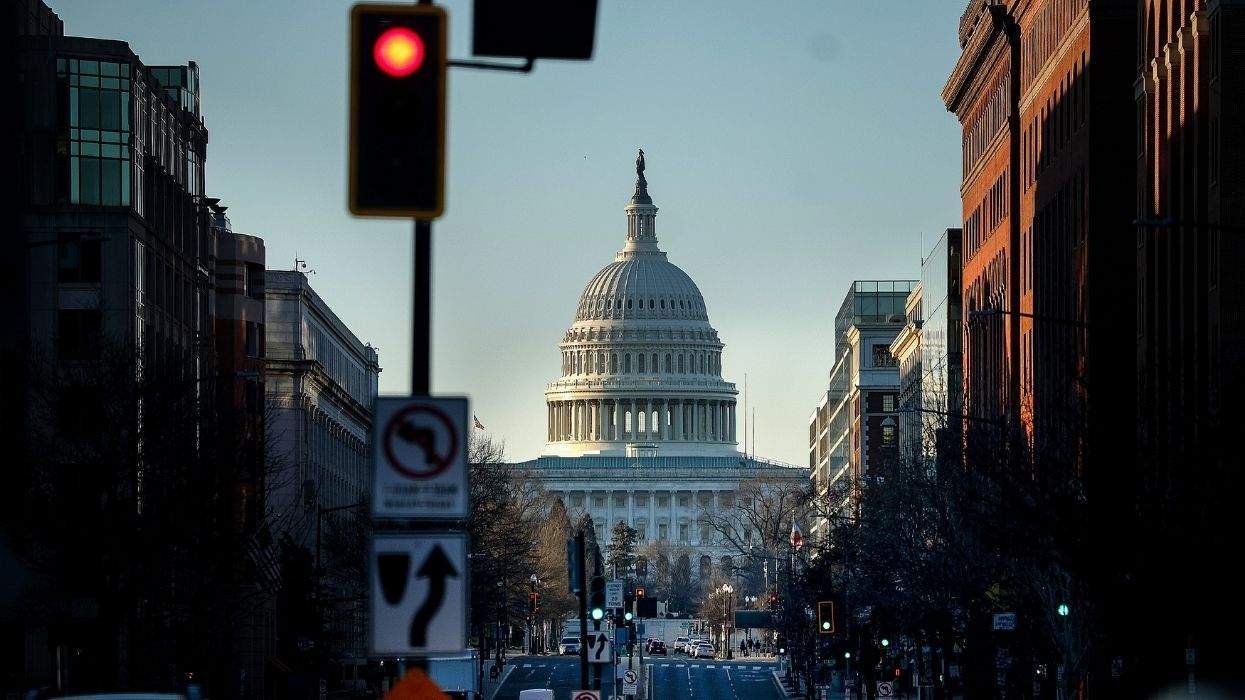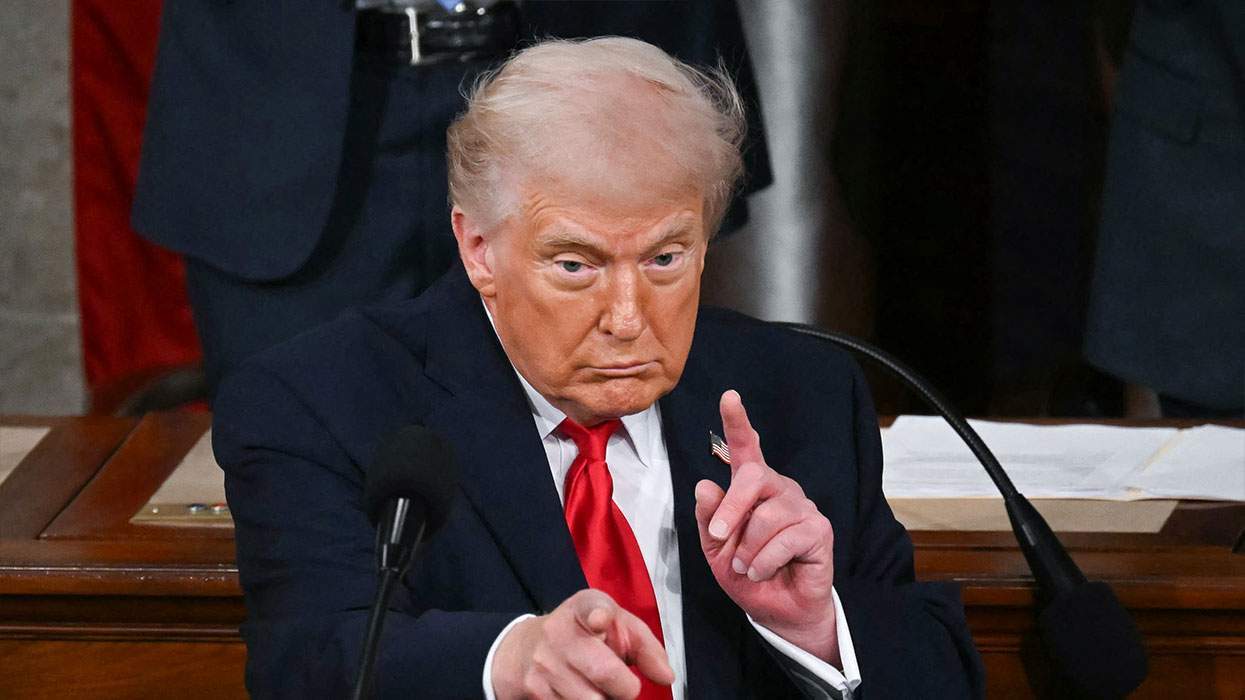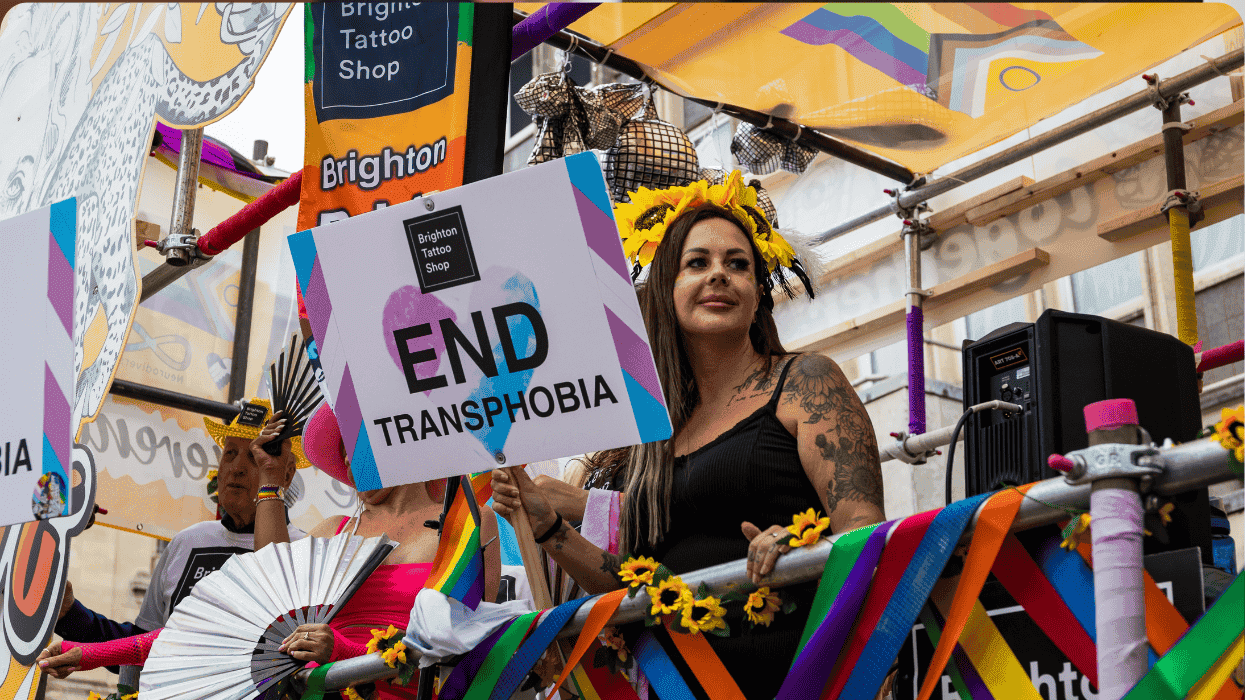Leave it to Andrew Sullivan to make Maggie Gallagher seem sensible.
The erstwhile conservative writer, one of the more provocative voices of the 1990s and now a peddler of conspiracy theories ranging from the influence of Jews over American foreign policy to the provenance of Trig Palin, recently faced off against the country's most dogged opponent of gay marriage in a room full of right-of-center gays at the Cato Institute, the country's premier libertarian think tank. They, along with Nick Herbert, a gay Conservative Party member of the British House of Commons, were gathered to debate the question, "Is there a place for gay people in conservatism and conservative politics?"
What could have been a provocative and much-needed discussion, however, quickly devolved into a shouting match, thanks to Sullivan's needless aggression. For instance, he demanded the names of any gay people who oppose same-sex marriage, since Gallagher claimed to personally know such individuals. (I do too, and while I may disagree with them, the reason I, and Gallagher, don't divulge their identity is because of the onslaught of viciousness they would receive from other gays, perfectly exemplified by Sullivan.) What any of this had to do with the topic at hand was lost amid the theatrics. And Gallagher, who is perhaps the most effective opponent of gay marriage because she doesn't resort to biblical arguments condemning homosexuality, was left looking like the reasonable one.
Sullivan also refused to address one salient fact: According to a CNN poll, 27% of self-identified gay voters supported John McCain in the last presidential election, the highest such figure ever recorded for a GOP candidate. In actuality, the number is likely higher, given that there are presumably many gay people who do not divulge their sexuality to pollsters. Regardless of whether the conservative movement thinks there should be room within it for gays, there are plenty of them already there.
One could witness this in February at the Conservative Political Action Conference, the annual gathering of right-wing politicians, grassroots activists, bloggers, and other assorted hangers-on that is one of the largest such conventions in the country. Two months prior to the event a bit of controversy erupted when GOProud, the barely year-old organization for "gay conservatives and their allies," announced it would join CPAC as a sponsor. Several far-right organizations protested, insisting that the event's organizers not allow GOProud to participate. When CPAC rejected their demands, these groups, led by the late Jerry Falwell's Liberty University School of Law, revoked their own sponsorship. One of the most talked-about moments of the convention occurred when Ryan Sorba, a young conservative activist and author of the tract The Born Gay Hoax (which, amazingly, has yet to find a publisher), denounced GOProud, declaring a straight libertarian who had just welcomed the group to the conference his "enemy." Sorba was booed off the stage.
Though it may seem paradoxical, the "gay agenda" today is fundamentally conservative. Neither gay activists nor mainstream conservatives will be happy to admit this, of course. Those in the conservative movement resistant to making peace with the main criteria of this program--the extension of civil marriage rights, the right to serve openly in the military, the right to adopt children, and the acceptance of homosexuality itself as a benign, naturally occurring feature of humanity--continue to think of the gay rights movement as it was in its heyday of the immediate post-Stonewall era. They see gay people as threats to the traditional American family structure and social order, which, to be fair, most of the prominent gay activists at the time were. Many had no interest in monogamous marriage, which they viewed as patriarchal and misogynist.
But today, there are no calls for free love or the sanctifying of bathhouses as battlegrounds for civil rights. The young gay activists protesting today do so in order to get married. They want to join a bedrock institution, not tear it apart. In this, they are taking up the mantle of the men and women who decided they had had enough harassment at the hands of the New York City police department. Though the modern gay rights movement was considered part of the counterculture, which in most respects it once was, the spark that lit its flame was a call to one of the most basic constitutional principles: freedom of association.
The same conservative impulses characterize the push for open service in the military. In the 1960s and 1970s some gay activists were rooting for a Vietcong victory and voyaging to Cuba to help realize Fidel Castro's communist revolution. Today, a major demand of the country's most prominent gay groups is the right to join the U.S. military. Such a position would be unimaginable to many of the gay activists of the early years, who, with some notable exceptions, were down-the-line hard leftists.
It is for these reasons that there is no conflict between the tenets of conservatism--at least philosophically--and a "progressive" understanding of homosexuality. It is, rather, certain critical constituencies within the conservative movement that have made that designation so difficult for many to comprehend and perhaps harder for its designees to bear. But there's nothing inherently oxymoronic in a gay conservative. There is no reason why one's sexual and romantic attraction to members of the same sex should render one predisposed to a left-wing view about the power of public employee unions or late-term abortion or affirmative action. Indeed, one could even argue, and some gay conservatives have, that on the latter two questions, being gay informs a right-of-center disposition. What will gay rights leaders have to say about abortion if medical advancements bring about the ability to discern a gay gene in fetuses? And while the prospect of employment and admissions preferences for sexual minorities may today seem like a wild idea (though not really so wild given the left-wing tilt of contemporary academia), does a realistic survey of affirmative action and the controversy it has caused on campus and in the workplace instill optimism for those who wish to see gay people fully integrated in society?
Rather, it is the geographic structure of the contemporary American conservative movement, so dependent upon the votes of religious conservatives (particularly evangelical Christians in the South), that makes many gay people and their straight allies view the Republican Party with hostility. It was the religious right, imbued with an undeniable hostility to gay people, that gave the conservative movement political power. Today, although the GOP remains adamantly opposed to gay marriage and the occasional Republican politician may utter an ignorant remark, antigay animus is slowly dissipating. It does not, for example, appear to have any place in the Tea Party movement sweeping the country. At the 2008 Republican National Convention, 49% of the delegates supported civil unions or marriage for gays, a number that will only increase every four years as the delegate pool becomes younger, itself a reflection of the remarkable generational shift that is evident on this issue. And at CPAC, only 1% of the 2,395 participants in the conference's straw poll listed "stopping gay marriage" as an important political concern.
To be sure, CPAC is not an entirely reliable indicator of where the conservative base stands. Yet anyone who spent a few hours at the conference would have been hard- pressed to describe it as antigay. Yes, there was a sideline press conference opposing repeal of "don't ask, don't tell." Yes, there was a booth in the exhibition hall for the National Organization for Marriage. But other than a selection of sodomy-obsessed fliers from the fringe Concerned Women for America, nothing associated with the conference smacked of antigay hostility.
It's not just gays on the right who should want to find a comfortable space in the conservative movement--gay liberals had better hope there's room for gays there too. That's because we continue to live in a center-right country, and with a Republican takeover of Congress in November becoming more likely with each passing day, the importance of achieving bipartisan support for gay rights legislation becomes all the more clear. Meanwhile, the past year and a half of legislative stalling--all while the Democrats had the White House and supermajorities in Congress--ought to put a dent in the claim that gays have no choice but to invest all of their political energies in the Democratic Party. If liberal gays truly value legal equality over political partisanship, they will wish groups like the Log Cabin Republicans and GOProud tactical success in changing the GOP from within.
Across the pond, the Conservatives are slightly favored to win the U.K. parliamentary election expected to be held in May, and if they do, according to Nick Herbert, the Tories will have more openly gay members of parliament than the Labour Party. As heartening as that is for gay rights, it shows just how wide the chasm remains between the United States and the United Kingdom. Our politics and culture remain significantly different, and the Conservative Party's welcoming of gays does not necessarily provide a realistic template by which the GOP will follow suit.
So it may fall on deaf ears when a Tory explains why his American fellow travelers must make room for people like himself. "Gay people are not the property of the Left, or of any party," Herbert said. "They will vote for the political party which best sits with their views, so long as that party does not make itself taboo." This is straightforward advice and will hopefully require something short of a second Boston Tea Party for the GOP to understand.















